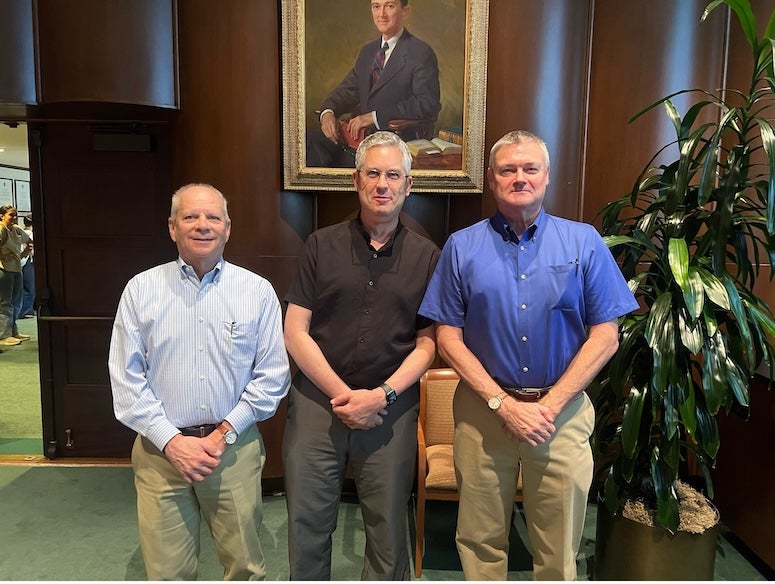Democracy and threats to it were front and center as Rice University’s Scientia Institute hosted its first event of the fall semester Oct. 24. The faculty lectures explored American voting systems, election administration and public policy — key areas that influence election outcomes and voter confidence.

Anthony Brandt, professor of composition and theory at Rice’s Shepherd School of Music and director of Scientia, welcomed attendees. The 2024-25 lecture series centers on democracy, examining the political, social and ethical challenges facing representative government and societies.
Philip Kortum, associate department chair and professor of psychological sciences at Rice, kicked off the event with a discussion of how the usability of voting systems can impact vote counts. Kortum is an expert on the measurement of usability across a number of different kinds of systems, including voting, medical, mobile, education and transportation. In his remarks, he explained that a well-designed voting system could significantly impact election security and turnout, noting that poorly designed systems have, at times, altered the course of elections. Kortum outlined his research on some of the most popular voting systems, pointing to common usability issues that hinder voter experience and sometimes lead to mistakes that alter the final vote count.
He also discussed the STAR Voting system , a secure and user-friendly system designed to address the issues he highlighted. According to his research, STAR Voting not only achieved high usability success rates but also maintained voting times comparable to those for traditional paper ballots, demonstrating that usability need not come at the cost of security.
The design of ballots, Kortum explained, is another crucial aspect of ensuring accurate election results. He referenced the infamous “butterfly ballot” from the 2000 presidential election, which included a poor design that contributed to mass voter confusion and potentially changed election results. Poorly designed ballots, he added, can disproportionately affect certain populations, including elderly and first-time voters. Kortum also mentioned other cases of ballot usability issues where unclear ballots and confusing layouts likely led to invalid or misinterpreted votes.
“I hope I’ve been able to convince you that usability actually impacts elections, and that’s why people need to be involved,” he said.

Robert Stein, the Lena Gohlman Fox Professor of Political Science at Rice and expert on election administration and public policy, addressed the topic of voter confidence and its critical role in democratic stability. Stein explained that voter confidence in election integrity, especially among losing candidates and their supporters, is essential for sustaining democratic institutions.
He cited recent studies showing a decline in voter confidence, especially among Republicans, which has had measurable effects on voter participation and trust in democratic institutions.
To explore factors affecting voter confidence, Stein introduced the “loser hypothesis,” which argues that losing candidates are more likely to question election fairness. Stein’s research indicates that electoral competition further erodes confidence in elections among losing candidates and their supporters.
In an ongoing experimental study in Texas, Stein and his team are investigating whether informing voters about election security measures can boost confidence in the electoral process. Stein and his team are sending postcards to Republican primary voters outlining the state’s security protocols to see if knowledge about actions the state takes to secure elections can increase confidence in the conduct and outcome of elections.
The lecture concluded with a call to action for both attendees and the broader public to engage actively in democratic processes. Both speakers encouraged the audience to be more involved and advocate for a political environment where every voter feels their vote truly counts.
Scientia is a faculty-led institute at Rice that promotes multidisciplinary engagement to benefit the university and the Houston community at large.

